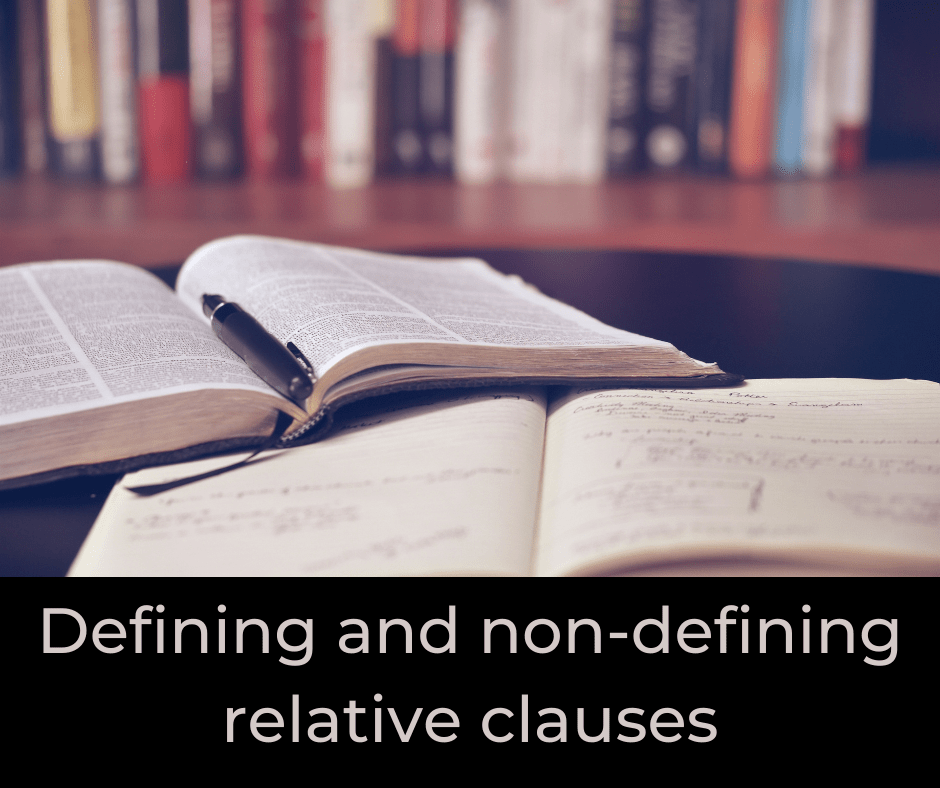
What are defining and non-defining relative clauses? Why do we need them and how do we use them? You’ll find out in this podcast.
Voice message from Alejandro from Medellín, Colombia
to put in practice
Idioms Connected to House & Home – AIRC220
‘to throw money down the drain’
XtheX people (people in general)
When was the last time you threw money down the drain?
My name is Laura Fauth, I´m Brazilian.
For me it was very helpful to discover your podcast!
I really like to study English, I enjoy listening and comprehension (understanding) the language.
I’m with (I have) coronavirus, and it has been hard to deal with, but I’m using a lot of medicine and doing a lot of nebulization every day.
Discover (Discovering) your podcast has helped me a lot to “forget” my symptoms.
I stayed very, very happy because I listened to “The Street Seller” and I understood everything!
Thank you so much, guys! Don’t stop doing the podcast, pleaseeeese!
Defining and non-defining relative clauses
Relative clauses* can join two or more sentences, or give more information about something or someone.
They are not the main clause in a sentence, but a different, additional clause.
*(A clause is part of a sentence with a subject and a verb.)
They can be in the middle or at the end of a sentence.
Defining relative clauses – contain information that is essential to the sentence to define who or what we’re talking about.
Ex. The girl who/that works at the petrol station has just had a baby.
I’ve found an app for my phone which/that makes my tea in the morning.
In both examples, the relative clause identifies/defines which thing or person is being talked about. If we omit the defining relative clause, we don’t define who or what we’re talking about.
Without the relative clause:
The girl has just had a baby. (We don’t know who the girl is. It could be any girl.)
I’ve found an app for my phone. (What app? There are thousands of apps.)
NOTE: No commas
We can use ‘that’ to replace ‘who’ (people) and ‘which’ (things), especially in spoken English.
He loves the chocolate (which/that) I bought. (We DON’T NEED the relative pronoun if it is the OBJECT of the verb in the relative clause.)
(the chocolate is the object)
That’s the girl who/that works at the petrol station. (We NEED the relative pronoun because it is the SUBJECT of the verb in the relative clause.)
Non-defining relative clauses – contain EXTRA information that is not needed to define the person or thing.
Ex. My sister’s new house, which is much smaller than her old one, is in the same town.
Napoleon Bonaparte, who was born in Corsica, was a powerful leader.
Without the non-defining relative clause, we still know exactly who/what we’re talking about:
My sister’s new house is in the same town. (We’re talking about my sister’s new house.)
Napoleon Bonaparte was a powerful leader. (We’re talking about Napoleon Bonaparte.)
NOTE: Put commas before the non-defining relative clause and after if it’s in the middle of a sentence.
‘That’ isn’t used to replace who or which.
You can’t remove relative pronouns from non-defining relative clauses, whether they’re subjects or objects.
Ex. Her English teacher, who everyone really likes, has started a podcast.
(Who – object – is obligatory)
Non-defining relative clauses are more common in written and formal English.
Defining or non-defining?
My eldest brother, who lives in Canada, is divorced. (It must be non-defining as you can only have one eldest brother.)
My brother who lives in Canada is divorced. But my brother who lives in France is married. (I have two brothers, so the defining relative clauses are necessary to identify/define which brother I’m talking about.)
My sister(,) who is married(,) is very slim. (It could be either depending on whether I have more than one sister.)
Speakpipe, which is a free service, is a way for you to send voice messages.
We use an app called Speakpipe that lets you send voice messages.
…and now it’s your turn to practise your English.
Send us a voice message. https://www.speakpipe.com/inglespodcast
Send us an email with a comment or question to [email protected] or [email protected].
Visit our online store: https://store.mansioningles.net/
Thank you to all of you who are helping us by supporting this podcast. You can see a list of all our Patreon supporters at Patreon.com/inglespodcast
Welcome to our new Patreon supporters who have joined us this month:
Michael Slaski
Javier Alberto
Cristina Morente
Maria Teresa Garcia (Maite)
Rafael
Join our Patreon program for as little as $1.20 per month (including VAT) and you get instant access to recent transcriptions. https://www.patreon.com/inglespodcast
The music in this podcast is by Pitx. The track is called ‘See You Later’
Photo by Laura Kapfer on Unsplash
Photo by Aaron Burden on Unsplash




Dear Reza and Craig,
Thank you very much for this podcast, it is a very important subject, but at the same time, quite difficult and confusing to me….
I need to listening to it a 100 times ???????? and to put it on practice……
Thanks
Aida
Thanks for listening Aida.
Reza.
Your message is clear, but here’s a few little corrections:
Dear Reza and Craig,
Thank you very much for this podcast, it is a very important subject, but at the same time quite difficult and confusing for me….
I need to listen to it a 100 times ???????? and to put it into practice……
Thanks
Aida